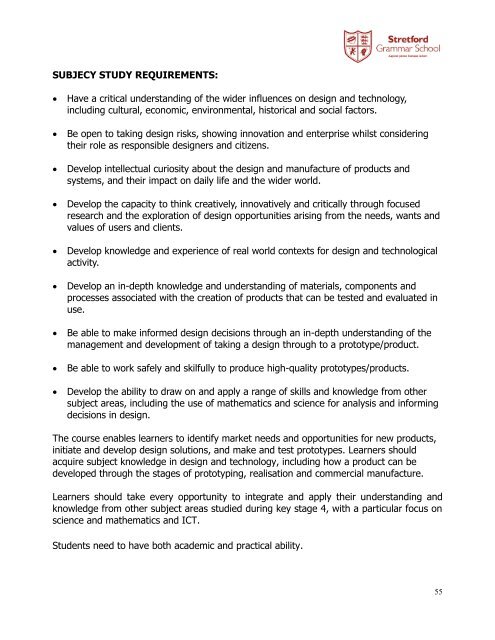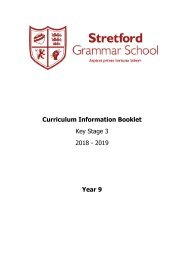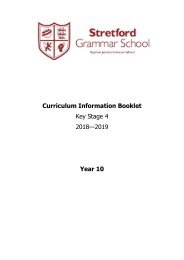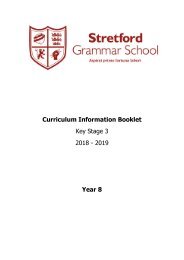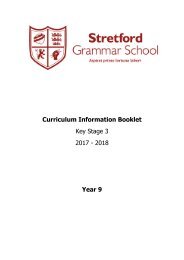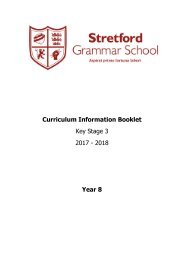Sixth Form Subject Information 2017/2018
You also want an ePaper? Increase the reach of your titles
YUMPU automatically turns print PDFs into web optimized ePapers that Google loves.
SUBJECY STUDY REQUIREMENTS:<br />
<br />
<br />
<br />
<br />
<br />
<br />
<br />
<br />
<br />
Have a critical understanding of the wider influences on design and technology,<br />
including cultural, economic, environmental, historical and social factors.<br />
Be open to taking design risks, showing innovation and enterprise whilst considering<br />
their role as responsible designers and citizens.<br />
Develop intellectual curiosity about the design and manufacture of products and<br />
systems, and their impact on daily life and the wider world.<br />
Develop the capacity to think creatively, innovatively and critically through focused<br />
research and the exploration of design opportunities arising from the needs, wants and<br />
values of users and clients.<br />
Develop knowledge and experience of real world contexts for design and technological<br />
activity.<br />
Develop an in-depth knowledge and understanding of materials, components and<br />
processes associated with the creation of products that can be tested and evaluated in<br />
use.<br />
Be able to make informed design decisions through an in-depth understanding of the<br />
management and development of taking a design through to a prototype/product.<br />
Be able to work safely and skilfully to produce high-quality prototypes/products.<br />
Develop the ability to draw on and apply a range of skills and knowledge from other<br />
subject areas, including the use of mathematics and science for analysis and informing<br />
decisions in design.<br />
The course enables learners to identify market needs and opportunities for new products,<br />
initiate and develop design solutions, and make and test prototypes. Learners should<br />
acquire subject knowledge in design and technology, including how a product can be<br />
developed through the stages of prototyping, realisation and commercial manufacture.<br />
Learners should take every opportunity to integrate and apply their understanding and<br />
knowledge from other subject areas studied during key stage 4, with a particular focus on<br />
science and mathematics and ICT.<br />
Students need to have both academic and practical ability.<br />
55


